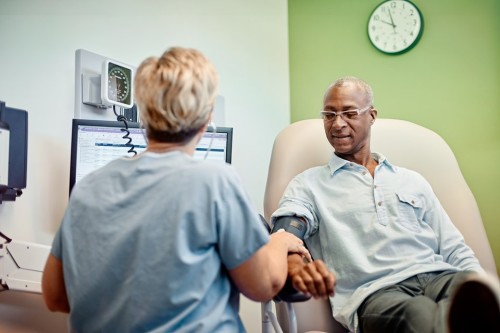The second installment of the Kaiser Permanente Institute for Health Policy’s Research Roundup showcases contributions to safety net clinics. In 2013, Kaiser Permanente invested $1.9 billion in a variety of ways in its communities, including support for 113 federally qualified health centers (FQHCs) and 63 free clinics. The integrated health care system continues to bolster its investment in safety net clinics to improve care delivery and access to services for vulnerable and underserved populations.
Community Health Centers’ New Medication Protocol
Rachel Gold and a team of researchers in Portland, Oregon recently received media coverage for their study on Kaiser Permanente’s Aspirin, Lisinopril, and Lipid-lowering medication (ALL) quality improvement protocol. The protocol uses EHR tools to remind providers to prescribe these medications to patients with diabetes who are at high risk for heart attacks and strokes. In an earlier study (Dudl, 2009), these drugs were shown to reduce the risk of these cardiovascular events. The health organization’s internal success with uptake of ALL medications led to a reworking of the model for use in community health clinics. To date 55 community clinics have adopted a modified ALL protocol. In Gold’s study, the percentage of diabetic patients who received the drugs at these sites grew from 45 to 63 percent from June 2011 through May 2013.
Mid-Atlantic Safety-Net Clinics
This spring, researchers from the Mid-Atlantic region published a study in the Permanente Journal reporting the results of Kaiser Permanente’s Community Ambassador Program (CAP). CAP places employees in safety net clinics in northern Virginia, Washington, D.C., and suburban Maryland to share best practices and provide resources to expand care. The results of this study showed CAP’s early successes: nearly 95 percent of clinics reported advances in patient care delivery, with quality improvements in weight screenings, adult tobacco use assessments, cervical cancer screenings, and breast cancer screenings. Clinics also reported offering more same day appointments and new services. As a result of CAP, many clinics adopted Kaiser Permanente’s evidence-based practices, and clinics were able to offer an additional 32,000 encounters.
Colorectal Cancer Screenings in Community Health Centers
Gloria Coronado and a team from Portland, Oregon were featured in a story highlighting their work to expand cancer services in federally qualified health clinics (FQHCs). Because these health centers have limited resources, many of their patients have never been screened for colon cancer or received a colonoscopy. Kaiser Permanente’s Center for Health Research investigators conducted a pilot study in one FQHC, which showed that mailing safety-net patients at-home fecal immunochemical test (FIT) kits increased colon cancer screenings rates by 40 percent. The study’s success encouraged researchers to expand their outreach from one clinic to 26 clinics, which plan to mail 20,000 FIT kits to safety net patients this year. Researchers are also helping FQHCs adopt EHR tools to track test results and follow up with patients, as well as assisting FQHCs in finding resources to provide colonoscopies to patients who have a positive result on the at-home FIT test.
Next month’s research roundup will feature research studies about interventions to maximize wellbeing. For more information on the research studies in this month’s Research Roundup, please contact Al Martinez at Albert.Martinez@kp.org.




